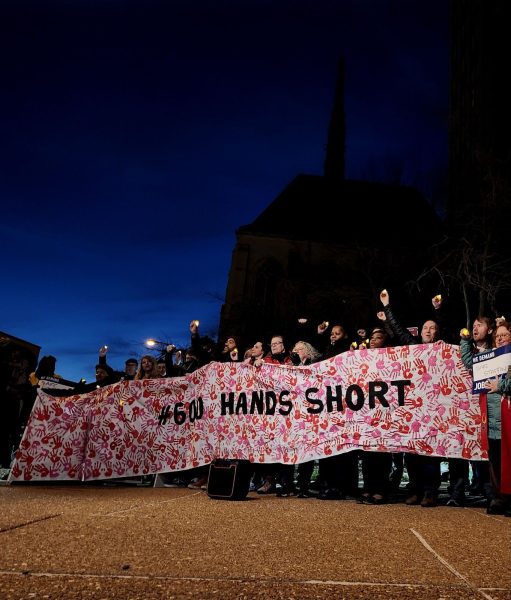Redditors Vs Wall Street: The GameStop Situation Explained
Within the last month, users from the subreddit known as r/wallstreetbets caused the stock prices of GameStop Corp. to rise significantly. Initially valued at $17.25 per share at the start of the January, the stock value of the video game retail company rose to an astounding $347.51 per share on Jan. 27 as a result of the massive influx of private investors buying the stocks from short sellers, a move that caused hedge funds like Melvin Capital substantial financial losses.
Within recent years, the once popular video game retail store had been struggling to compete with the rise of online services like the Playstation Network or Xbox Live, which sell digital copies of video games, saving customers the hassle of going out to physical stores to buy games. Wall Street investors noticed the decline, and decided to short sell the stock. Short selling is the process by which an investor borrows stocks in order to sell them, with the idea being that the stock’s value would decrease and the investor would buy the stock back at a lower price, with the difference being collected as profit upon returning the stock. In short, Wall Street investors would benefit from the decline of the GameStop stock.
The popular subreddit r/wallstreetbets took notice of the short position and users began to encourage other retail investors to buy up the stocks of Gamestop. The endeavor gained even more popularity when Tesla and SpaceX CEO Elon Musk tweeted a link to the subreddit with the message “Gamestonk!!”, for his millions of followers to see. Using investment apps like Robinhood, private investors bought up GameStop stocks in great numbers, causing the value to rise and the short selling strategy of hedge funds to backfire.
The frenzy eventually led to Robinhood placing trading restrictions on stocks for GameStop as well as twelve other companies, including AMC and Blackberry. In an interview with CNBC, Robinhood CEO Vlad Tenev claimed that the move was to “protect the firm and protect our customers” and how “[the requirements for stock restrictions] can be substantial in the current environment where there’s a lot of volatility and a lot of concentrated activity in these names that have been going viral on social media.”
This did not stop Robinhood from facing criticism from all sides of the political spectrum. New York Democratic Rep. Alexandra Ocasio-Cortez and Texas Republican Senator Ted Cruz both tweeted against the action, showing disapproval towards Robinhood’s choice to limit the ability of retail investors to purchase stocks. The Security and Exchange Commission (SEC) is also conducting evaluations regarding the situation with Robinhood.
As of Feb. 8, the current value of GameStop stocks has gone down to $60.00 per share. Even though the price on the stock has lowered, the frenzy between r/wallstreetbets and hedge funds is still noteworthy. Whether that be memes or media attention, one thing is certain: the GameStop fiasco has proven that private retail investors can make an impact on the stock market.
Your donation will support the student journalists of Saint Louis University. Your contribution will help us cover our annual website hosting costs.










